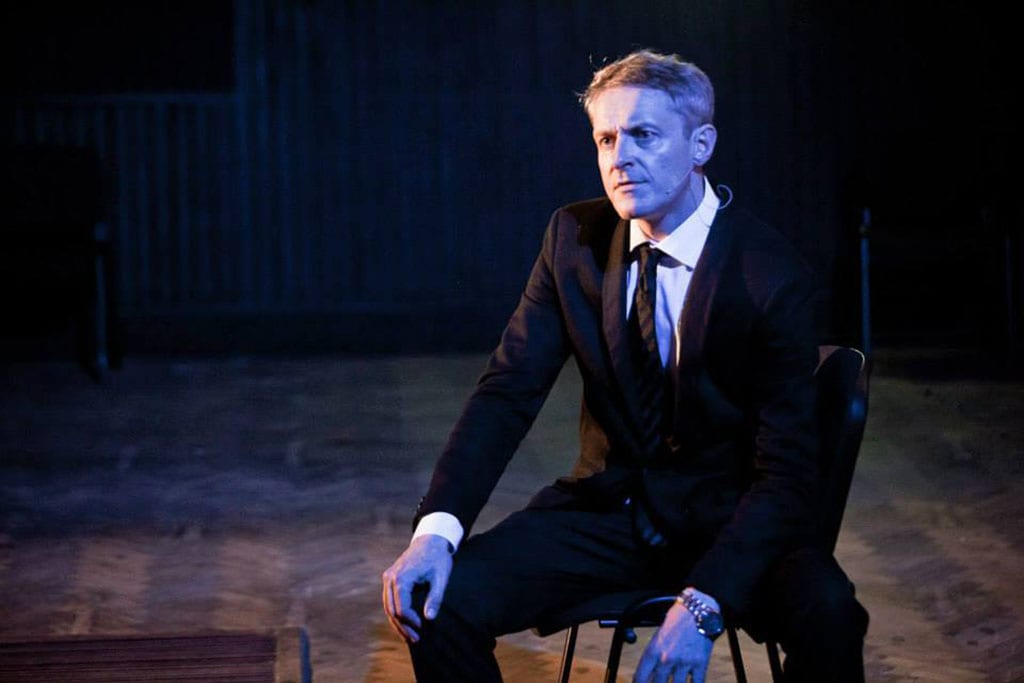Neil LaBute’s play is one of those ostensibly proper and straightforward tales with an unexpected twist at the end. Well-written and in an equally well-executed translation, this text is meant to shock or at least surprise the audience; this it certainly does. The concept behind the performance is clear from the beginning and Agnieszka Lipiec-Wróblewska should be praised for this simplicity and her “less is more” approach which is visible in both set design and in Jacek Poniedziałek’s slightly uneven, yet nevertheless moving performance. He portrays a newly widowed middle-aged man, who in his well-tailored suit, is someone you wouldn’t look at twice in a crowded lift. His most striking characteristic is the intensity of feelings he has towards his deceased wife with whom he had spent the last twenty-five years. As he is getting ready to say a few words in memory of his beloved Mary-Jo, he indulges himself in a very personal monologue. Agnieszka Zawadowska’s set is minimalistic and rather austere. A black backdrop with a crucifix, some flowers and a couple of chairs intentionally create a subtle background so as not to overshadow Poniedziałek’s performance.
Lighting one cigarette after another, Edward, with a hint of bitterness n his voice, confronts the reality of being a widower all too painfully aware of how absurd this really is. Poniedziałek is excellent at making witty remarks. However, he becomes slightly less believable when it comes to talking about his feelings towards Mary Jo who has always been “worth living for”. He tries, sometimes successfully, sometimes not, to find a balance between tenderness and passion. The death of his wife has left Edward helpless and, in a way, orphaned for the second time in his life. His monologue, which can be perceived as a conversational stream of consciousness, is a fervent though impossible attempt at reconstructing what he has just lost. Poniedziałek’s calm and composed performance seems lacking in emotion when confronted with the words of his character. Sadly, it is all too apparent where the actor comes across as quite mannered and slightly artificial.
Nevertheless, the actor manages to redeem himself at the end of the play in a scene in which he recreates the moment of his wife’s passing in a tender and truly heartbreaking way. It is here that Poniedziałek is able to create a convincing portrait of the bereaved spouse, who struggles between a sense of relief as well as unimaginable loss. Then comes the moment to reveal a deep-buried secret.
For a moment he becomes once again a little boy lost, a man deprived of love. Jacek Ponedziałek’s character challenges our inbred sense of propriety. Edward is portrayed as a likable, slightly sly but still rather decent man, who gradually reveals himself to be morally questionable at the very least. However, in the end, the character inspires sympathy rather than disgust from the audience who are forced to ask themselves A few difficult questions. Does love forgive everything? Can feelings overcome morality and social conventions? In the end nothing seems black and white any longer, which is undoubtedly the performance’s greatest quality.

